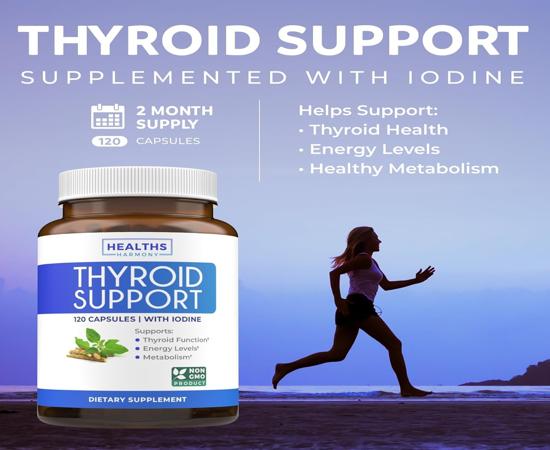### Introduction
Hypothyroidism is a common condition that affects the thyroid gland, leading to a decrease in the production of thyroid hormones. One of the most well-known symptoms of hypothyroidism is weight gain. In fact, hypothyroidism is often referred to as the number one cause of weight gain among individuals. Understanding the relationship between hypothyroidism and weight gain is crucial for effective management of this condition and achieving a healthy weight.
### Benefits
Recognizing the impact of hypothyroidism on weight gain can lead to various benefits, including:
– Early detection and treatment of hypothyroidism can help prevent excessive weight gain.
– Understanding the link between hypothyroidism and weight gain can aid healthcare providers in developing personalized treatment plans.
– Proper management of hypothyroidism can support weight loss efforts and overall well-being.
– Increased awareness about hypothyroidism as a potential cause of weight gain can encourage individuals to seek medical attention for unexplained weight changes.
### 5

FAQs
#### Why does hypothyroidism lead to weight gain?
– Hypothyroidism results in a slower metabolism, leading to fewer calories burned at rest.
– Reduced thyroid hormone levels can impact the body’s ability to regulate energy expenditure.
#### Can hyperthyroidism also cause weight gain?
– While hyperthyroidism is more commonly associated with weight loss, some individuals with this condition may experience weight gain due to increased appetite and changes in metabolism.
#### How does hypothyroidism contribute to weight gain?
– Thyroid hormones play a crucial role in regulating metabolism and energy balance. Low levels of these hormones in hypothyroidism can disrupt these processes, promoting weight gain.
#### Can weight gain due to hypothyroidism be reversed?
– With proper diagnosis and treatment, individuals with hypothyroidism can manage their weight effectively through medication, lifestyle modifications, and dietary changes.
#### Are there specific dietary recommendations for individuals with hypothyroidism and weight gain?
– While there isn’t a specific diet for hypothyroidism-related weight gain, consuming a balanced diet rich in nutrients and monitoring iodine intake can support thyroid function and metabolism.
### A Detailed Explanation
Hypothyroidism affects the body’s metabolism, causing it to slow down. This means that fewer calories are burned at rest, making it easier to gain weight even when consuming the same amount of food as before. Additionally, the hormonal changes associated with hypothyroidism can lead to fluid retention and increased fat storage, further contributing to weight gain.
People with hypothyroidism may also experience symptoms like fatigue, muscle weakness, and constipation, which can make it challenging to engage in regular physical activity, leading to a more sedentary lifestyle and weight gain. Moreover, untreated hypothyroidism can disrupt insulin sensitivity and lipid metabolism, factors that can promote weight gain and difficulty in losing weight.
### Where can I Purchase Hypothyroidism – #1 Cause of Weight Gain?
If you suspect you have hypothyroidism and are experiencing unexplained weight gain, it is essential to consult a healthcare professional for diagnosis and treatment. You can purchase medications and supplements for managing hypothyroidism and weight gain at reputable pharmacies, both in-store and online. Remember to follow your healthcare provider’s recommendations and attend regular check-ups to monitor your condition.
### Conclusion
In conclusion, hypothyroidism is a significant contributor to weight gain in many individuals. By recognizing the relationship between hypothyroidism and weight gain, individuals can take proactive steps to manage their condition effectively. Seeking timely medical advice, following treatment plans, and making healthy lifestyle choices are key to addressing weight gain associated with hypothyroidism and achieving overall well-being.![['Hypothyroidism - #1 Cause of Weight Gain', 'hypothyroidism leads to weight gain', 'hypothyroidism makes you gain weight', 'hyperthyroidism causes weight gain', 'weight gain in hypothyroidism', 'hypothyroidism and weight gain', 'hyperthyroidism makes you gain weight', 'hypothyroid and weight gain', 'why weight gain in hypothyroidism', 'hypothyroidism cause weight gain', 'why do you gain weight with hypothyroidism', 'why does hyperthyroidism cause weight gain', 'weight gain due to hypothyroidism', 'hypothyroidism causes weight gain']](https://ordernowdirect.com/wp-content/uploads/2025/01/Layer_8.jpg)



